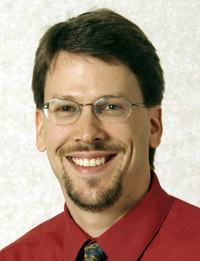Gut Health and SCI: Probiotics as Treatments? - Blog - Reeve Foundation
This is a cool paper, just out in the Journal of Experimental Medicine, from the Phil Popovich lab at Ohio State: "Gut dysbiosis impairs recovery after spinal cord injury.” They found that SCI greatly changes the community of bacteria living in the intestines; the microbiome, as it is called, is significantly disrupted by damage in the nervous system. This results in dysbiosis and it messes with all sorts of body functions, including recovery from injury.
Here’s Popovich, professor of neuroscience and director of The Center for Brain and Spinal Cord Repair at Ohio State's Neurological Institute, quoted in a press release from the university:
The trillions of microbes that exist in the gastrointestinal tract have emerged as pivotal regulators of human development and physiology. Spinal cord injuries cause dramatic shifts in the types of bacteria normally found in the gut, resulting in dysbiosis, which can cause or contribute to neurologic disease.
There have been many studies in recent years about the gut biome and its relationship to disease: multiple sclerosis, type I diabetes, and rheumatoid arthritis have been linked to dysbiosis, and it appears to be linked to other disorders including pain, depression, anxiety, stroke, and even autism.
It’s not hard to imagine that fine-tuning the microbiome will lead to effective, drug-free therapies for numerous modern maladies. What better way to health than balancing the body’s own defense systems?
The segment of neuroscience dealing with the immune system, neuroimmunology, has expanded greatly in recent years, especially at Ohio State. Last winter we looked at work by the Jan Schwab lab there, reporting that SCI causes not just mobility issues and all the rest, but also an “induced immune deficiency syndrome.” This is why people with paralysis, especially those in the high-thoracic area of the spinal cord, are more susceptible to pneumonia and other infections.
The first author of the new paper is Kristina A. Kigerl, an example of the depth on the Ohio State bench, due to its commitment to spinal cord research and its robust “farm system.” Kigerl came to OSU as an undergrad, got her Ph.D. there, her post-doc there, and now she’s a staff scientist. She works with SCI models and immune signaling.
 I heard Popovich present preliminary work at a Reeve-sponsored science meeting 18 months ago; he showed then how acute SCI clobbers the immune system, causing gut biome chaos and dramatically shrinking the spleen (therefore reducing immune response and antibody protection in body). What he said then was really powerful, I thought at the time, and he and his group repeat it in the new paper. The gut biome is greatly impacted by SCI but there’s an easy remedy for at least part of the problem: animals given a probiotic supplement that is available widely at health food stores regained gut health and importantly, showed better recovery of locomotor function than animals that didn’t get the probiotic.
I heard Popovich present preliminary work at a Reeve-sponsored science meeting 18 months ago; he showed then how acute SCI clobbers the immune system, causing gut biome chaos and dramatically shrinking the spleen (therefore reducing immune response and antibody protection in body). What he said then was really powerful, I thought at the time, and he and his group repeat it in the new paper. The gut biome is greatly impacted by SCI but there’s an easy remedy for at least part of the problem: animals given a probiotic supplement that is available widely at health food stores regained gut health and importantly, showed better recovery of locomotor function than animals that didn’t get the probiotic.
What they did: mice were treated with an antibiotic before being injured. The drug went to work on the gut biome. After injury, an antibiotic group of animals showed higher levels of spinal inflammation and were much more impaired than injured animals that did not get the gut-bomb antibiotic.
From abstract:
Experimental induction of gut dysbiosis in naive mice before SCI (e.g., via oral delivery of broad-spectrum antibiotics) exacerbates neurological impairment and spinal cord pathology after SCI.)
But animals fed a product called VSL#3 had better outcomes – the probiotic triggered a protective immune response and improved locomotor recovery. Yogurt is a probiotic, so are kefir and kombucha; VSL#3 is far more potent, according to information from numerous commercial vendors on the Internet. VSL#3 formulations are said to contain from 225 billion to 900 billion bacteria per serving. Wow. There is some mention of CVSL## in the literature. “Data from noncomparative trials suggest that VSL#3 has clinical potential in the treatment of active mild to moderate ulcerative colitis and as maintenance therapy for patients with ulcerative colitis in remission.”
Popovich isn’t sure of the precise way probiotics work in his model. He noted that they contain large numbers of lactic acid-producing bacteria, which apparently activate immune cells in the gut; these may simply suppress inflammation, thus helping to prevent biochemical damage to the spinal cord after injury. Popovich speculated that probiotic bacteria might boost recovery by secreting some form of growth molecules. "Either or both of these mechanisms could explain how post-injury disruption of the gut microbiome contributes to the pathology of spinal cord injuries and how probiotics block or reverse these effects," he said.
“Our data highlight a previously unappreciated role for the gut-central nervous system-immune axis in regulating recovery after spinal cord injury,” Popovich said. “No longer should 'spinal-centric' repair approaches dominate research or standards of clinical care for affected individuals.”
Join Our Movement
What started as an idea has become a national movement. With your support, we can influence policy and inspire lasting change.
Become an Advocate